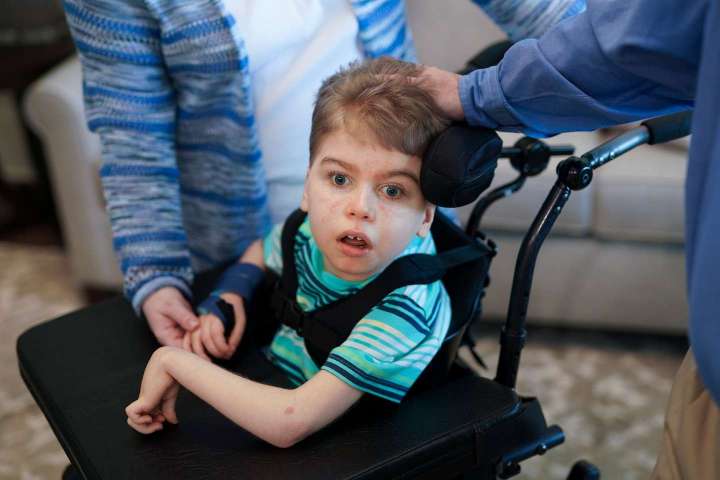A major home elevator company agreed this week to fix a safety hazard that has been tied to the deaths and injuries of children, ending a lengthy pursuit by federal regulators.
After years of accidents involving kids, home elevator firm agrees to recall

Four other elevator companies — Otis Elevator, Bella Elevator, Inclinator and Savaria — voluntarily agreed to similar safety recalls in the past year.
The string of recalls and pressure by regulators is aimed at addressing a problem with in-home elevators that has been blamed for repeatedly crushing young children. The elevator industry has known about the potential danger — and a simple fix — since at least the 1940s, a 2019 Washington Post investigation found, but, in most cases, companies resisted calls to do anything. And until recently, regulators failed to pressure the companies to make changes.
Many home elevators made before 2017 allow enough space — just a few inches — for a young child to become trapped between the inner door and swinging outer door, leading to rare but devastating accidents. A $100 plastic or foam guard can be installed to fill in the space between the doors.
But few people appear to be aware of the potential risk.
The danger of such accidents and the long history of inaction was highlighted by The Post investigation.
At least eight children were killed and two more seriously injured in elevator entrapments between 1981 and 2019, according to CPSC records and newspaper accounts. Elevator industry experts say the actual number is significantly higher.
Last year, a 7-year-old Ohio boy was killed in a home elevator accident at a beach rental in North Carolina’s Outer Banks.
Even more children are probably involved in “near miss” incidents. Kaleb Rice was 4 in 2019 when he narrowly escaped being crushed by a residential elevator at his grandparents’ home in Utah.
“Finally,” Kaleb’s mother, Mary Rice, said Thursday about the CPSC settlement requiring a safety recall.
Rice said her son is now a healthy first-grader who tells people an elevator “tried to eat him.”
The CPSC settlement involves elevators produced under various names, including ThyssenKrupp Access Manufacturing and National Wheel-O-Vator.
“Working in cooperation with the CPSC strengthens our ongoing home elevator safety campaign to help alert dealers and homeowners to this industry-wide topic,” said Howard Fencl, a company spokesman.
The company, along with other elevator firms, had for years clashed with the CPSC. The companies denied responsibility for the problem, saying the elevators had been installed improperly. They said they could not fix them in part because they didn’t know where their elevators were installed.
In 2019, the CPSC decided against pushing for a recall after meeting with industry representatives, as the agency was mired by internal divisions over what to do, The Post investigation found.
Instead, the CPSC’s acting chairwoman posted a short “safety alert” about the elevator door gap on the agency’s website and sent a similar notice to governors in every state.
But accidents continued to occur. And victims’ families kept pressing for change.
After securing voluntary recalls from several manufacturers in 2021, the CPSC voted in July of that year to go to court to force ThyssenKrupp Access to conduct its own recall. It is unusual for the CPSC to file a lawsuit to compel action for what the agency considers a substantial product hazard. Almost every product recall is voluntary, sometimes with pressure from regulators.
The CPSC’s case against ThyssenKrupp Access had been working its way through an administrative court since then.
In addition to announcing this week’s settlement and recall, the CPSC also warned homeowners to keep children out of residential elevators until a safety inspection is conducted.
“This action by the CPSC, although years late for many families, will save lives going forward,” said Andy Cash, an Atlanta attorney whose firm, Cash, Krugler & Fredericks, represented victims’ families and pushed regulators for a recall.
At least two accidents involved ThyssenKrupp Access elevators.
Jacob Helvey, then 3, was crushed by one of the company’s elevators on Christmas Eve 2010 at his home outside Atlanta. He was found by his mother, pinned by the elevator at his chest. Responding firefighters needed special tools to free the child. He survived but suffered a severe brain injury.
In 2017, another ThyssenKrupp Access elevator was tied to the death of 2½-year-old Fletcher Hartz at his grandparents’ home in Little Rock.
Both families for years pleaded with CPSC officials to force companies to fix the problems with residential elevators.






